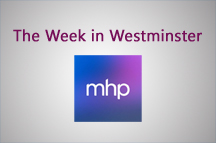 Well, ‘Spreadsheet Phil’ didn’t disappoint. When he said the Spring Statement would be low key and uninspiring, he meant it.
Well, ‘Spreadsheet Phil’ didn’t disappoint. When he said the Spring Statement would be low key and uninspiring, he meant it.
Since the late 1990s, the commentariat has become used to the cycle of two major fiscal events every year. Many were left scrabbling for something to say about the content of Tuesday’s statement, which effectively marks a return to the traditional once a year Budget cycle that prevailed pre-1997.
In so far as anything of note emerged from it, the Chancellor tried to paint a positive picture of deficit reduction, with a light at the end of the tunnel. But it’s been a very long tunnel, there is no certainty that the predictions made will not be buffeted by future events. A question also remains as to whether the Government as a whole will be able to withstand the pressure to turn on the spending taps in the short to medium term.
MHP-ers attending the Spectator Budget briefing were treated to a prediction of significant investment in the NHS. This is to be announced in the Autumn Budget and to be funded via a 1% increase in National Insurance contributions.
All speculation at this point, but those making the prediction are well informed and closely plugged in to the thinking in Conservative circles.
Apart from the barely contained excitement arising from the Spring Statement, Westminster chat was dominated by the fallout from the attempted poisoning of Sergei and Yulia Skripal, with initial investigations pointing to the involvement of the Russian State.
Theresa May sought to move quickly to ensure that the displeasure not only of the UK but also of our allies was made clear, winning her rare plaudits and consensus from across the political divide.
Well, not quite. In an approach that provoked much huffing and puffing – again – among moderate Labour backbenchers, Jeremy Corbyn has questioned whether or not the evidence has been sufficient to conclude Russian involvement so rapidly. Almost alone in the international community, Corbyn also backed the Kremlin’s demand to have a sample of the agent used against the Skripals, to verify its provenance.
While it’s a position that will undoubtedly play well to Corbyn’s hardcore base, the complaints of moderates have been even louder than usual. Some have suggested that this could mark a turning point, prompting Corbyn’s critics to finally act. I wouldn’t hold your breath.
In the meantime, the Conservatives have apparently opened up a 3-point lead in the latest opinion poll, suggesting that the public has responded well to her ‘tough’ stance. Only time will tell.
And finally, one person who has not been in Westminster – or Brussels – this week, is the saviour of Brexit, our very own David Davis. He has been busy visiting European capitals impressing the need for flexibility in Brexit negotiations.
Although nothing is concrete, early reports suggest some movement, with the EU apparently ready to concede that the UK will be allowed to both negotiate and sign trade deals with third countries during a transition period.
Full details are expected next week. Watch this space.














